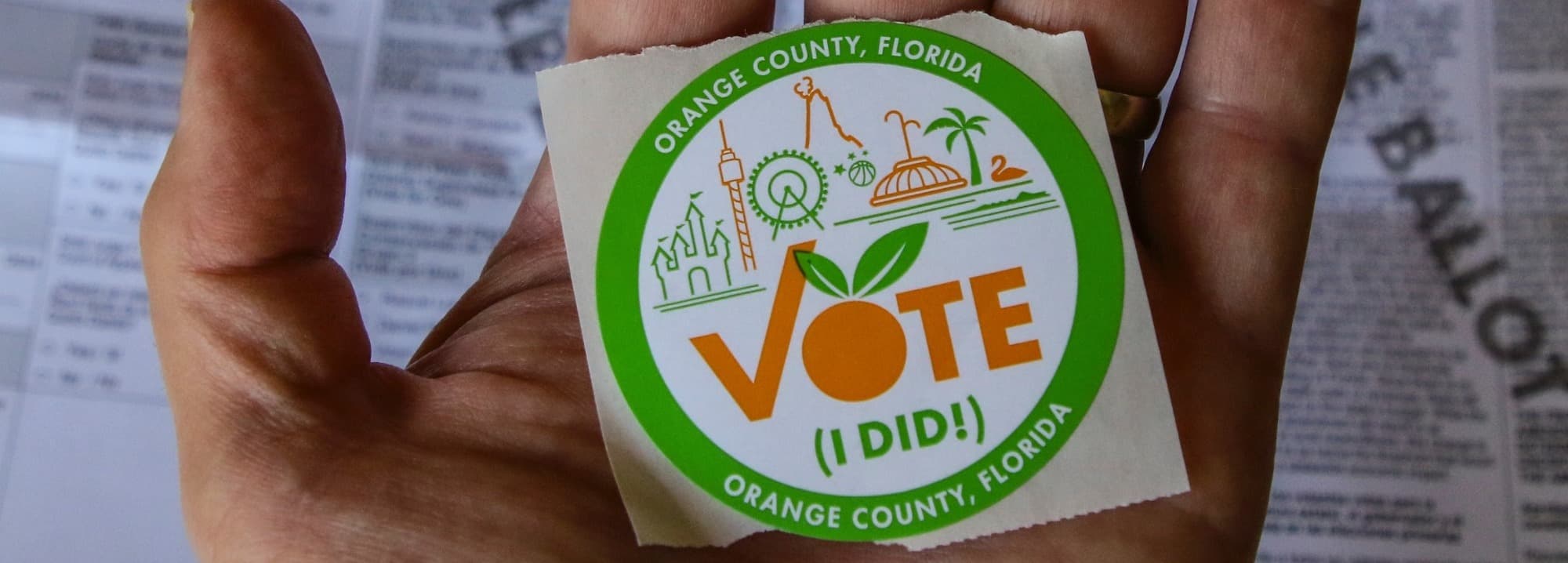
Electoral Reform: How to Challenge Ballot Access Laws
Ballot access laws in the United States have been a contentious issue for decades. They create barriers for independent candidates, and have often been perceived as a barrier to democracy itself. On the occasions when an unaffiliated candidate has come close to challenging the establishment in any meaningful way, the powers that be simply move the goalposts.
These laws vary significantly from state to state and can pose formidable challenges for those who want to run for office outside the traditional party system.
Read on as we will explore the importance of challenging ballot access laws, discuss the significance of doing so, and outline some strategies that independent voters and candidates can use to make their voices heard.
Understanding Ballot Access Laws
Ballot access laws are a patchwork of rules and regulations that determine who can and cannot appear on the ballot during an election. These laws were created with the aim of ensuring that candidates meet specific requirements before they can compete in an election.
That was the idea, anyway, and we do want to put forth qualified candidates who truly want to make our government work for everyone who lives here.
However, in practice, these laws serve as roadblocks for independent and third-party candidates. while limiting the choices available to voters and stifling political diversity.
Ballot access laws detail the requirements needed for candidates to be included in the ballot, including the number of signatures needed to qualify as a candidate, filing fees, deadlines, and specific party affiliation requirements.
Unfortunately, many states have set up tough and, some would argue, unfair standards that make it exceptionally difficult for independent candidates to participate in elections. Most arguments against ballot access laws focus on the difficulty for indy and third party candidates who want to compete in presidential elections.
But, some locations make it harder for independent candidates to run for state, too.
States With the Strictest Ballot Access Laws
Some Secretaries of State and politicians argue that the procedures for running elections, including who can get on the ballot, are an issue of State’s Rights. However, this leads to a hodgepodge of legislations that vary from state to state, making it difficult for independent candidates to create actionable, unified strategies to win at the national level.
The National Association of Secretaries of State has created a database detailing the ballot access requirements for independent, establishment, and third-party candidates in each state. There is also a state-by-state breakdown of requirements for ballot access as a write-in candidate.
These are among the states with the most stringent ballot access laws:
Illinois candidates must have the lesser of 1% of voters who voted at the next preceding statewide general election or 25,000 signatures. In order to run for state office, they must also have at least 600 signatures from each district.
Independent hopefuls in California must have valid signatures equaling 1% of all registered voters in the state, which currently stands at 21,980,768 million voters as of the last election and translates to around 21,000 signatures
Virginians who want to run for office outside of the establishment must have garnered 10% of the total statewide vote in the previous two elections to run third-party. Independents need at least 5,000 signatures from qualified voters, including at least 400 from each congressional district.
In Arizona, indy hopefuls need at least 43,000 signatures, they have to be from at least five different counties, and 10% of the signatures must be from counties with populations under 500,000.
Nevada independents must obtain at least 10,095 signatures, with a minimum of 2,524 coming from each of the four congressional districts.
In the absence of ballot access, there’s always the write-in route for candidates. However, there are nine states that don’t allow write-in votes at all:
Arkansas
Hawaii
Louisiana
Mississippi
Nevada
New Mexico
Oklahoma
South Carolina
South Dakota
All but seven states limit write-ins only to registered candidates. The seven with no requirement at all are:
Alabama
Colorado
Iowa
Maryland
New Hampshire
Oregon
Vermont
Note that some of these ballot access laws apply only to presidential elections, while others apply to presidential and statewide offices. In all cases, the signatures must be validated and from registered voters residing in that state. Campaign managers and staff cannot be among the petition signers.
Why Challenging Ballot Access Laws Matters
Some of the ballot access laws have been on the books for decades and are so prohibitive that independent and third-party candidates have been unable to meet their criteria. Lower courts have overturned challenges in the past, mainly for two reasons:
There is no constitutional right to run for office
Voters have no guaranteed right to place initiatives on the ballot
However, the Supreme Court has ruled that ballot access laws impact the First Amendment right to freedom of association and the 14th Amendment right to equal protection. States counter that such laws are necessary to prevent frivolous candidacies and protect the integrity of elections. Lately, the Supreme Court has sided with the states by taking a more general view of these protections rather than considering the impact of access laws on individual voters or candidates.
No matter the rationale or how many times the establishment steps in to block independent candidacies, it’s important that we keep challenging the laws.
Here are four solid reasons why:
#1: It Enhances Democratic Participation
Ballot access laws can either facilitate or hinder a diverse range of voices and perspectives in the political process. By challenging these laws, we can promote greater democratic participation and encourage a wider array of candidates to run for office.
#2: It Breaks Up the Current Duopoly
The two-party system has dominated American politics since its inception. Challenging ballot access laws empowers independent and third-party candidates, breaking the duopoly's grip on our political landscape and providing voters with more choices.
#3: It Promotes Healthy Competition
Reducing restrictive ballot access laws fosters a more competitive electoral environment. This competition drives candidates to be more responsive to the needs of their constituents because they’ll actually have to work to earn their support.
#4: It Increases Accountability
When voters have more options, elected officials may feel more accountable to their constituents. Challenging ballot access laws leads to fairer representation and better decision-making.
Challenging Ballot Access Laws: Strategies for Independent Candidates
We can’t wait for - or rely on - the establishment to throw us a bone. There’s too much at risk and too little to gain for them. That’s why it’s essential for voters and independent candidates to continue challenging unjust laws and requirements that limit choice and thwart the will of the people.
Before embarking on your campaign, it’s important to know where you stand in your own state and nationally so that you can devise strategies to challenge ballot access laws.
Here are some actionable steps for candidates and their campaign teams to use:
Know your state laws: Ballot access laws differ significantly from state to state. Start by thoroughly researching the specific requirements in your state. You should also seek legal counsel or consult experts in election law to ensure that you understand the intricacies of the rules as they apply to your candidacy.
Organize a strong campaign team: Building a team of dedicated volunteers and campaign staff is vital. They can help with gathering signatures, fundraising, and navigating the legal and logistical aspects of your campaign.
Collect signatures: This is one of the main barriers to the ballot in many states, but it will demonstrate support for your candidacy. Understand the rules and deadlines, start early in your campaign, and ensure that your team has a robust signature-gathering operation.
Fundraise for the long haul: Running for office requires financial resources. Independent candidates should establish a clear and transparent fundraising strategy to cover campaign costs, including legal fees, advertising, and events.
Obtain legal support: Consult with an attorney or legal expert who specializes in election law. They can guide you through the legal requirements and help you prepare for potential challenges or disputes.
Leverage grassroots support: Building a strong base of grassroots supporters can significantly enhance your campaign's chances of success and get the word out about your candidacy. Engage with your community, attend local events, and use social media to create a buzz around your campaign.
Challenging Ballot Access Laws: Strategies for Independent Voters
Voters can make their voices heard, too. Let the establishment know that you stand behind true choice in democracy by:
Supporting independent candidates. Show your support for independent candidates who are challenging restrictive ballot access laws. Volunteer, donate, and encourage others to do the same. A strong, active voter base can make a significant difference in the drive for electoral reform.
Advocating for reform. Get involved in local and state-level political organizations that advocate for election law reform. Lobbying for changes in ballot access laws is an effective way to open up the electoral process for all candidates.
Educating others. Raise awareness about the issues surrounding ballot access laws. Engage in conversations on social media, attend community meetings, and write to your local newspapers to inform others about the challenges independent candidates face.
Participating in grassroots movements. Join or support grassroots movements that are pushing for more inclusive and equitable ballot access laws. History has shown that these movements can have a significant impact on changing the political landscape.
Voting for independent candidates. It’s not enough to talk about how much you hate the status quo and support independent candidates. Put your vote where your mouth is by showing up to the polls on election day and voting for independents up and down the ballot. By doing so, you send a message that you value diversity in the political arena and are willing to support candidates who challenge the system.
The Broader Significance of Challenging Ballot Access Laws
The fight to challenge ballot access laws goes beyond independent candidates and voters; it's a fight for the integrity of the democratic process itself. Democracy thrives when citizens have choices and when their elected officials are truly representative of their interests. When ballot access laws create barriers that favor entrenched party interests, it weakens the very foundation of our democracy.
By challenging these laws, we can promote a more vibrant and diverse political landscape, one that better reflects the rich tapestry of views and values held by the American people. This inclusivity can lead to more innovative, progressive policies, greater responsiveness to constituent needs, and a government that genuinely serves the people
Join the Fight for Voter Choice in Our Democracy
A thriving democracy depends on the voices of the people being heard. Strict ballot access laws hurt democracy by limiting voters to a binary choice between two, largely preselected, establishment candidates.
If you’re tired of the status quo and want real change in the American political system, join GoodParty.org in our efforts to end the duopoly by helping viable independent candidates like you take their seat at the table.
We offer all of the tools, resources, and information you need to run for office and win!
Photo Credit: Mick Haupt on Unsplash

